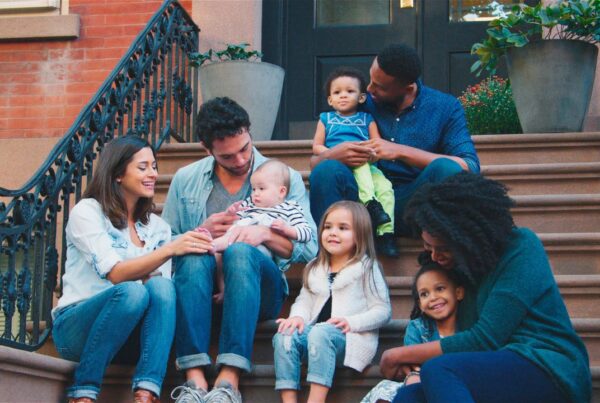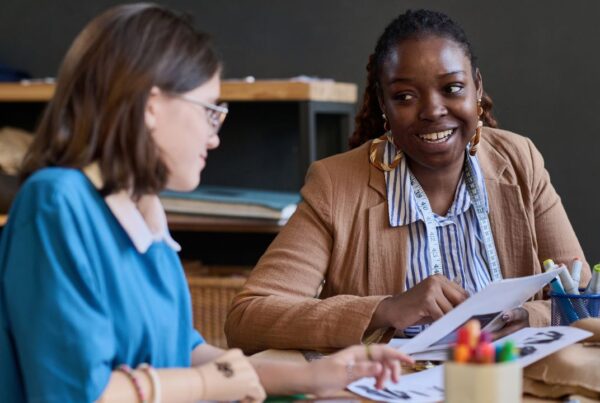KidsPeace’s Cherished Connections Mentoring Program recognizes the benefits that mentoring can provide to the youth we serve through our Independent Living Program. Our mission is to give hope, help and healing to youth transitioning into adulthood. In the Cherished Connections Mentoring program, current youth in foster care (ages 14-23) are matched with a positive, caring adult in the community to coach them in life skills, be a “listening ear,” introduce them to new opportunities, empower them to make responsible decisions, and spend time pursuing activities of shared interest.
The vision of Cherished Connections Mentoring is to provide lifelong connections to youth in out-of-home placement and involved in the child welfare system. It acknowledges that quality mentoring can play a role in assisting youth to succeed in areas of development such as, but not limited to, academic achievement, employment, and reducing engagement with the judicial system. By supporting youth with various independent living and social skills, we can increase the likelihood these youth will have a successful transition to adulthood.
Transitioning from youth to adulthood is difficult coming from a conventional family; imagine being a youth transitioning out of foster care. Picture your core family not being there to support you; consider having little to no knowledge of how to access resources; think about not having a “home sweet home” to go to or not having any one person to turn to when you are in need. This is what youth aging out of foster care encounter daily; just in Pennsylvania, about 1,100 youth a day “age out” of foster care or leave the system at 18 or older with little support. (American First Policy)
To become a mentor, you have to be at least 21 years old, complete background clearances, including a motor vehicle report, complete training such as Trauma 1, Resiliency, Mandated Reporter and First Aid and CPR, and be committed to your mentee for at least one year.
Our first matched Volunteer mentor, Dina, was motivated to become a mentor as there was a time that her niece lived with her through Kinship Care. Her niece was removed from her mother’s care, was returned, then at 19 moved out of her mother’s house. Her father was absent from her life since the age of three and her mother never really took much of an interest in her. Their relationship is very volatile and chaotic.
Dina’s niece looks to her, another aunt, and her grandmother for a lot of help with life basics because she never received guidance from her mother. Dina’s niece did not know how to do laundry, how to write a check or open a bank account, or how to drive, and she had no idea how to apply for a job. Dina was happy to help her niece and found a lot of joy in seeing her start to learn independent living skills, watching her gain confidence and be excited when she is able to do things for herself.
Dina said that it occurred to her that, “There are so many kids who don’t have anyone to turn to for help with turning into independent adults or to provide any type of support as they go through these transitional years.” Once she found out there was a program starting to help those youth, Dina said, “I was excited to join in the effort.”
Dina feels satisfaction through volunteering with Cherished Connections Mentoring Program. Her mentee has opened up little by little and Dina feels her mentee knows that she can go to her to learn new things, seek advice and confide in. Dina is looking forward to her and her mentee continuing to build their relationship and to help her mentee with whatever she needs.
Dina was asked what she has learned about youth transitioning out of foster care. She previously thought youth in foster care were there because of some situation that had them removed from their homes and families. With her mentee, Dina sees that some of the youth do have connections with or even live with family but for whatever reason do not have the support that most expect from family. Dina knows that her mentee has a history with both her mother and grandmother that is nothing like she had with her own family members at that age. “It surprises me, as a mother myself, that any mother can let her situation in life come to a point where her child has been removed from her care and then also not work to build something better if/when they are returned,” she says.
When asked what she hopes for her mentee to get out of the mentoring program, Dina said, “I hope that she will be able to look back at this time in the future and be glad that she had someone she could turn to for support and help with whatever she might need as she navigates coming into adulthood. I hope that we stay connected and I am able to see her ‘come into her own’ and turn into a successful adult.”
For herself, Dina says she hopes she can help her mentee; she wants to provide any kind of support and be a friend, and see her learn new things and make a lifelong connection. Dina would like to meet her mentee’s future spouse and maybe her children – if that’s what she wants in life.
Down the road, she would like for her mentee to say, “Dina helped me.”






